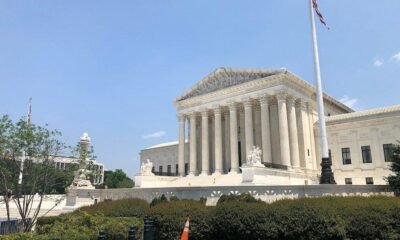Business
Fresh Assaults Emerge on the Affordable Care Act

The Affordable Care Act (ACA) is facing renewed scrutiny from Republican lawmakers, who argue that its key components impose excessive costs on taxpayers and foster an environment ripe for fraud. This marks a shift from previous repeal efforts to a focus on alleged financial inefficiencies within the program.
House Republican leaders have urged two federal watchdog agencies to delve into this issue, while Senator Charles Grassley (R-Iowa) has posed pointed questions to the Centers for Medicare & Medicaid Services regarding ACA’s enhanced subsidies. These financial aids, introduced during the COVID-19 pandemic, were initially designed to aid economic recovery.
Grassley expressed concerns that these subsidies have opened the door to “waste, fraud, and abuse” within a program that he claims was already troubled. This renewed criticism reflects a strategic pivot as outright repeal seems unlikely, with over 21 million Americans currently enrolled in marketplace plans.
Debbie Curtis, a vice president at consulting firm McDermott+, pointed out that the ongoing situation appears to set the stage for significant debates anticipated next year. The enhanced subsidies, set to expire at the end of 2025, could lead to increased premiums for millions if not extended.
Next year’s legislative landscape will be shaped by the outcome of the November elections, influencing control of both the Senate and the House, as well as the presidency. The fate of the subsidies is intertwined with broader fiscal discussions, including the expiration of Trump-era tax cuts, compelling both parties to negotiate various compromises.
A recently published report from the conservative Paragon Health Institute has fueled Republican rhetoric regarding the subsidies, suggesting potential inaccuracies in income reporting by beneficiaries could be resulting in inflated subsidy amounts. It estimates that the number of enrollees claiming low incomes sufficient for zero-premium plans may surpass actual income levels in several states.
The report’s recommendations include allowing enhanced subsidies to lapse, imposing stricter penalties for inaccurate income projections, and retracting initiatives that enable year-round enrollment for low-income individuals. Both Grassley and House GOP leaders have referenced this report to bolster their arguments.
However, some experts raise fundamental questions about the methodology of the Paragon study, citing its reliance on disparate data sources that could misrepresent subsidy eligibility. Critics like Gideon Lukens, a senior fellow at the Center on Budget and Policy Priorities, argue that the analysis lacks the rigor necessary for reliable conclusions.
Paragon’s president defended the study, emphasizing the use of publicly available data and inviting verification of the findings. Reactions to the report’s suggestions have been mixed, with some health policy analysts warning that such changes would disproportionately harm low-income individuals, countering the goals of the ACA.
Joseph Antos from the American Enterprise Institute supports tightening the subsidy criteria to mitigate the risk of unauthorized enrollment adjustments by unscrupulous brokers. He also advocated for Medicaid expansion in states that have yet to adopt it, arguing it would alleviate income misestimations for ACA qualifications.
Under the current program enhancements, low-income families, such as those earning between $30,000 and $45,000, can qualify for plans without monthly premiums. President Biden is pushing for the permanence of these subsidies, highlighting the comprehensive coverage now available to millions.
The Congressional Budget Office (CBO) recently projected that making enhanced subsidies permanent would add $335 billion to the federal deficit over the next decade, further complicating fiscal debates amidst projected costs of extending the Trump tax cuts.
Despite concerns voiced by Republicans regarding subsidy-related fraud, many observers believe that healthcare issues may not significantly sway election campaigns for either party. Curtis noted that Republicans might avoid health care as a campaign issue, which has historically not been advantageous for them.
As discussions surrounding the ACA evolve, both parties face a critical choice between extending financial support for millions and managing budgetary impacts. The complexities of this issue reveal the difficult trade-offs inherent in healthcare policy.


















